India deepens ties with Taiwan
India's recent high-profile attendance at a security forum in Taiwan suggests it is ready to deepen ties with Taiwan to safeguard its future interests, despite expected pushback from China.
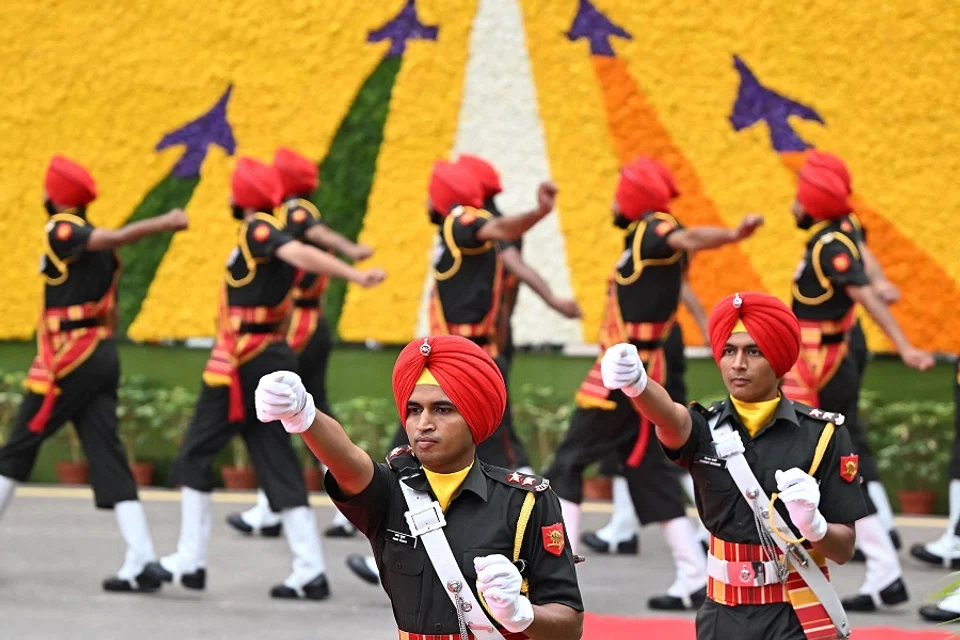
Three former service chiefs of the Indian Army, Air Force and Navy were in Taiwan on 8 August to attend the seventh Ketagalan Forum - a security dialogue organised by the Ministry of Foreign Affairs (MOFA) of the Republic of China (Taiwan) to enhance "cooperation and dialogue among relevant parties so as to maintain and advance peace, security, and prosperity in the Indo-Pacific".
With Taro Aso, the former prime minister of Japan, and Andrus Ansip, former prime minister of Estonia, delivering the keynote speeches, a high-level delegation from India comprising former Indian Army chief, General Manoj Naravane; former Navy chief, Admiral Karambir Singh; and former Air Force chief, Air Chief Marshal RKS Bhadauria, has made the headlines.
A shift in Indian thinking on Taiwan
India's decision to send former service chiefs is seen as a significant shift in India's position on maintaining a low-key approach to Taiwan, considering that this might hurt sentiments in Beijing. India seems to have overcome the China dilemma and moved away from a discreet affair to a substantial turning point, signifying a subtle yet firm departure from historical hesitation to underscoring its eagerness to deepen ties with Taiwan, with a focus on defence cooperation, trade, and technological collaborations.
Notably, even though India does not maintain any formal diplomatic ties with Taiwan, since 1995, India has maintained non-diplomatic ties with Taipei through the establishment of the India-Taipei Association in Taiwan following a Taipei Economic and Cultural Centre (TECC) in New Delhi and a recent branch office of the TECC in India's economic capital Mumbai.
Delhi is conscious that Taiwan is also an Indian contingency, given the volatile situation on the long and contested border with China in the Himalayas.
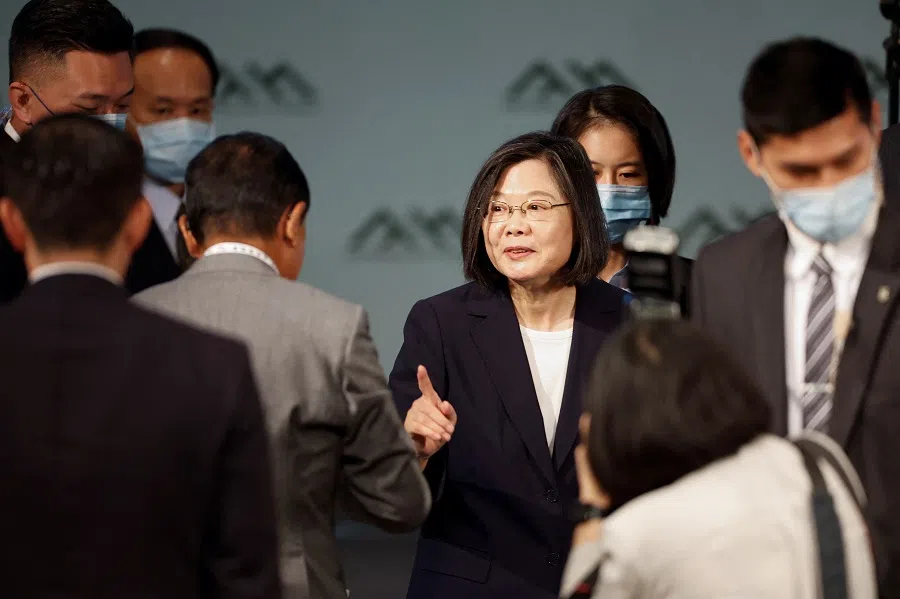
While India remains ambivalent about a potential outbreak of the Taiwan crisis, India for sure knows its security and economy will be deeply affected by the consequences of a Taiwan Strait crisis. Delhi is conscious that Taiwan is also an Indian contingency, given the volatile situation on the long and contested border with China in the Himalayas.
In India's strategic calculations, its cooperation with Taiwan has a view to the future that cannot be held hostage to China's pressure, even though Beijing has the ability to alter regional power balances.
Stronger economic cooperation
The participation of the three chiefs is seen as an effort by New Delhi and its security establishment to present potential policy options for India in case of a crisis outbreak in the Taiwan Strait. Despite mounting Chinese threats, India's bilateral trade with Taiwan reached a record US$8.5 billion in 2022, with Indian investments from approximately 106 Taiwanese companies exceeding US$1.5 billion.
Foxconn, a key Apple supplier, operates manufacturing units in India and is exploring semiconductor collaborations. In 2022, Indian Prime Minister Narendra Modi welcomed Foxconn CEO, adding, "I welcome their plans for expanding electronics manufacturing capacity in India, including in semiconductors. Our push for EV manufacturing is in line with our commitment to Net Zero Emission."
India's recent moves exhibit Delhi holding no hesitation in making its technological priorities right with Taiwan, irrespective of the tense environment in the Taiwan Strait, South China Sea, Indo-Pacific and others.
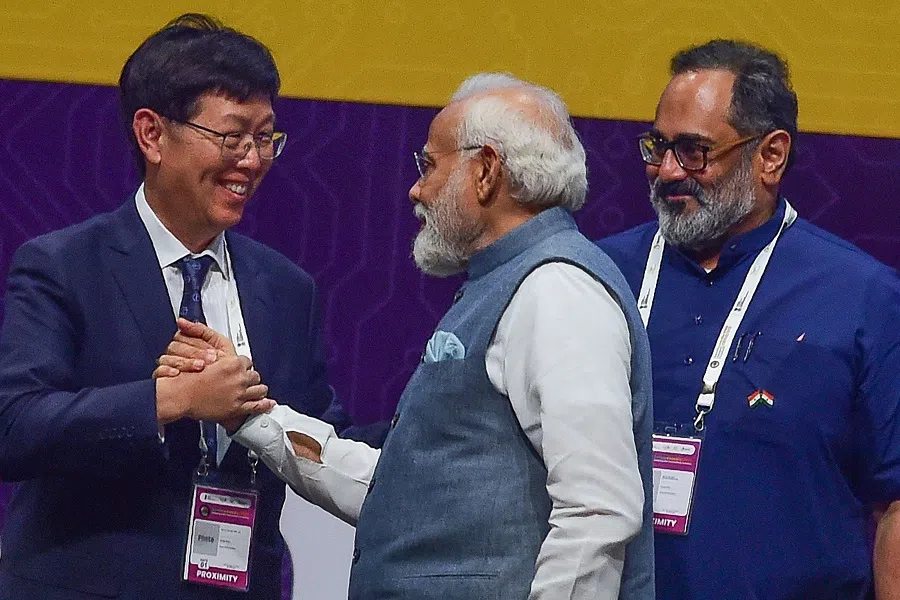
This developing cooperation with Taipei shows India's strategic approach to balancing its economic objectives with Taiwan while managing complicated geopolitical circumstances. With the semiconductor industry being India's prerequisite to its booming telecoms, defence and electronic vehicle (EV) manufacturing industries, its cooperative endeavours with Taiwan are set to grow, bringing potential advantages for both parties.
As global supply networks realign and nations strive to diversify their reliance, India's growing equation with Taiwan certainly raises the heat in Beijing. India's recent moves exhibit Delhi holding no hesitation in making its technological priorities right with Taiwan, irrespective of the tense environment in the Taiwan Strait, South China Sea, Indo-Pacific and others.
During the Semicon India 2023 conference in Gujarat, India, Foxconn's CEO, Young Liu, engaged in discussions with the Indian Prime Minister Narendra Modi. The meeting was crucial in light of recent developments in the bilateral ties on the technological front, especially after the Taiwanese tech giant withdrew from a US$19.5 billion joint-venture deal with the Indian conglomerate Vedanta. While the exact reasons behind the withdrawal from the joint venture by Foxconn are still unclear, the slow pace of establishing a semiconductor plant, regulatory challenges, global supply chain dynamics, economic factors, technical hurdles and geopolitical considerations make a strong case.
However, India remains hopeful of renewing cooperation with Foxconn, reiterated in a tweet by Indian Prime Minister Narendra Modi, who "welcomed Foxconn's plans to expand semiconductor and chip manufacturing capacity in India" in July this year.
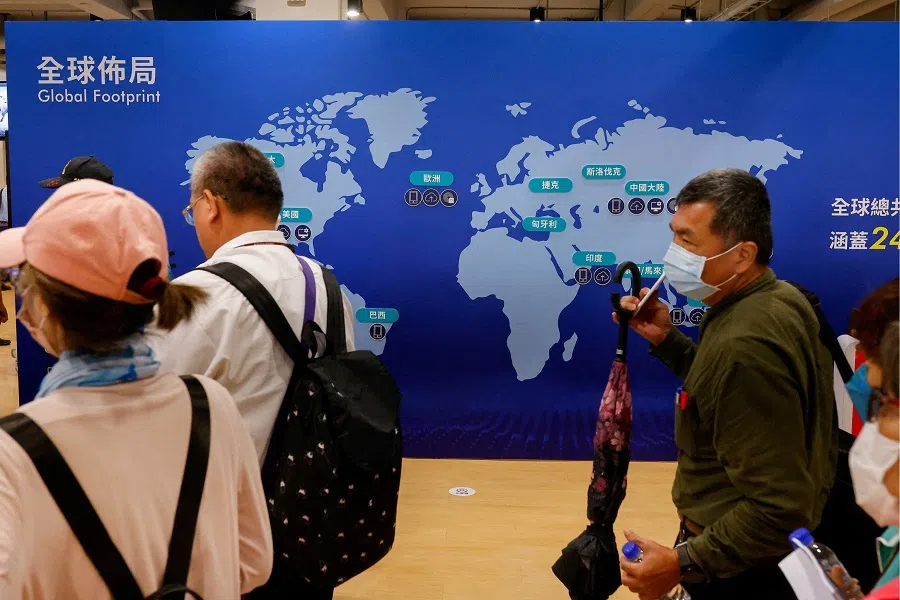
Despite Foxconn withdrawing from the joint venture with Vedanta, the reported move by Apple Inc. to produce its next-generation iPhone 15 in Tamil Nadu, India, through a Foxconn plant reflects a significant development in India's semiconductor industry and its cooperation with Taiwan. This shift aligns with India's growing semiconductor needs and its endeavour to establish itself as a manufacturing hub for electronics. At the same time, Taiwan has made critical investments in India in several sectors.
Reportedly, Taiwan and India are also finalising the Labour Mobility Agreement to attract more skilled Indian labourers. In 2022, trade between the two countries has touched US$8.5 billion. Meanwhile, Taiwan has long been awaiting a free trade agreement (FTA) with India, which remains under wraps so far.
Overall, Taiwan's quest for stronger economic cooperation with India is driven by Taipei's "New Southbound Policy (NSP)", which has been the major focus of the Tsai administration. The cooperation also signifies a delicate yet impactful partnership with shared goals in a complex geopolitical landscape.
India's interest lies in preventing destabilisation, given the potential cascading impacts on maritime security, shipping and the economy.
Stakes for India in the event of a Taiwan crisis
At the Ketagalan Forum, India's former Navy chief, Admiral Karambir Singh, dwelled on the intricate complexities of India's evolving foreign policy amidst a world grappling with a resurging Cold War sentiment and simmering geopolitical tensions. Admiral Singh underscored the criticality of preserving stability and balance, especially in light of a potential Taiwan crisis. What emerges from his speech is India's nuanced approach to the impending Taiwan crisis.
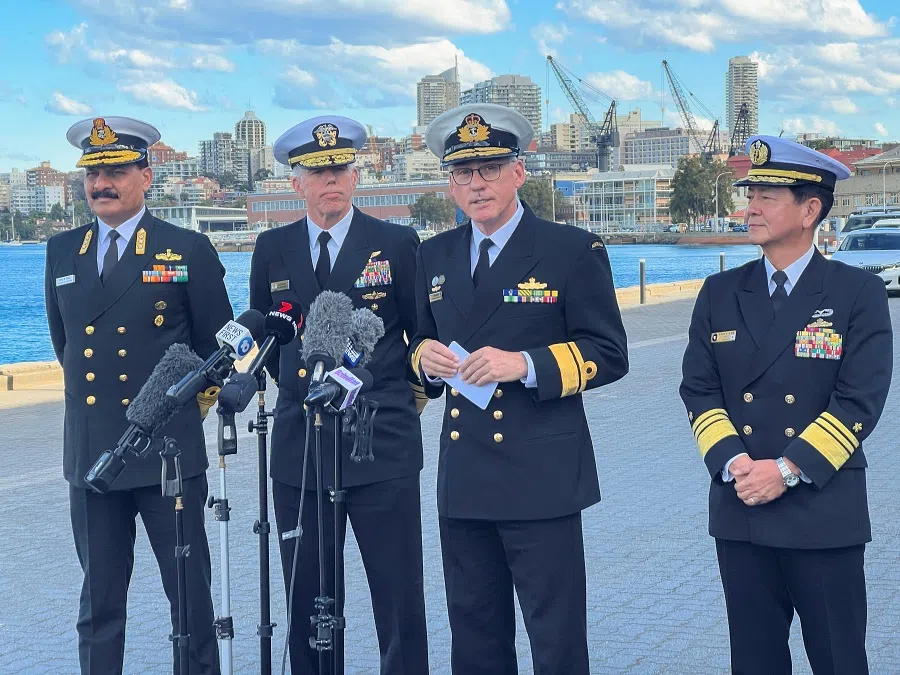
India's emphasis on exercising restraint, avoiding unilateral actions, and striving for de-escalation underscores Delhi's commitment to maintaining regional stability. While not explicitly taking sides, India's interest lies in preventing destabilisation, given the potential cascading impacts on maritime security, shipping and the economy.
The stakes for India in the Indo-Pacific, should a Taiwan crisis erupt, are significant. A conflict in the region would disrupt maritime trade routes, which are crucial for India's economic growth and energy security. The admiral highlighted that India's ambition to become a US$5 trillion economy by 2025 hinges on its ability to navigate the seas and access global markets. Any escalation could trigger a domino effect, adversely impacting India's progress.
... a Taiwan crisis could deepen the fault lines in the already complex India-China relationship.
Furthermore, the Indian delegation underscored the potential ramifications for India-China relations. The admiral's cautionary notes about geopolitical strife turning into larger conflicts hold relevance here. With its implications for regional power dynamics and global credibility, a Taiwan crisis could deepen the fault lines in the already complex India-China relationship.
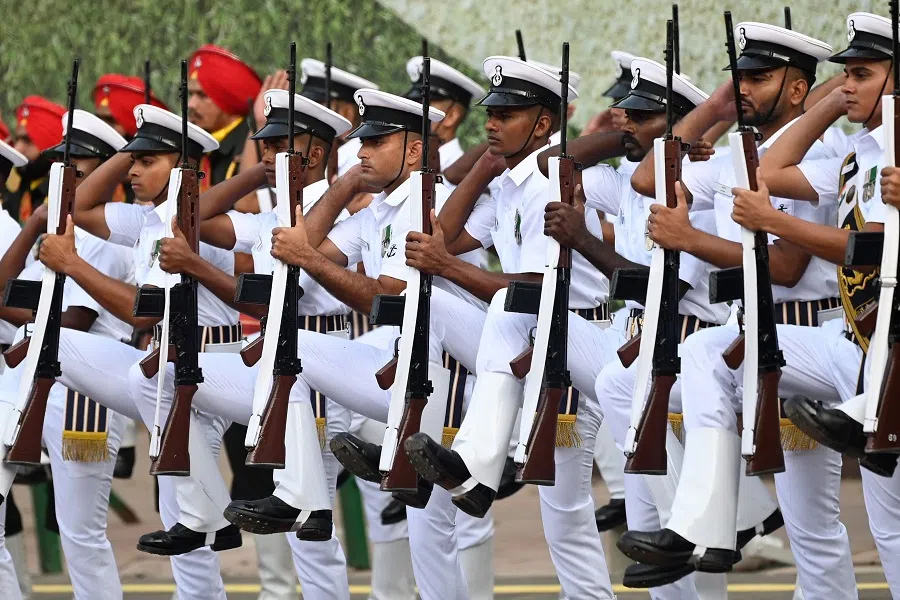
In light of these challenges, the potential options for India's strategic course include restraint, dialogue, and the involvement of middle powers along with a cooperative, multilateral approach to defuse tensions. India's ability to rally like-minded nations, particularly from the global south, could amplify its diplomatic influence in the Indo-Pacific.
Possible reactions from China
China regards Taiwan as a delicate subject and maintains a firm stance on the "one China" policy, which says there is only one China, of which Taiwan is a part. Therefore, India's ties with Taiwan affect China's opinion of India's commitment to this strategy. While not establishing diplomatic ties, New Delhi's engagement with Taipei indicates India's pragmatic approach considering its future needs that Taiwan is well equipped to fulfil.
At the same time, Taiwan aims to exploit India's market and count on New Delhi's diplomatic support in a crisis. However, anything of a strategic nature will possibly see reactions from China. So far, neither the Chinese foreign ministry nor the Chinese state media reacted to the visit of the Indian delegation to Taipei. The recent engagements between Taiwan and India serve as a reminder of the rising convergence between Taiwan and democratic nations, including the US, Japan, and Australia, who are creating a larger alliance to offset China's power.
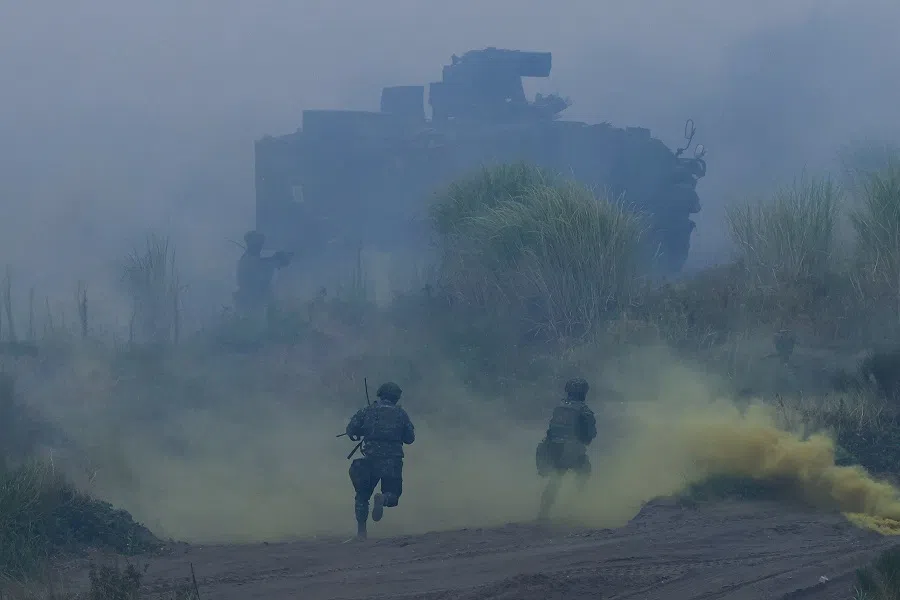
Furthermore, it demonstrates the endurance of Taiwan's diplomatic manoeuvring by highlighting China's difficulties in controlling Taiwan's overseas involvement. Thirdly, it makes it more difficult for Beijing to handle its tense ties with several nations at once, possibly deflecting its attention and resources.
India seems to be presenting a pragmatic approach to a complex and looming crisis. As geopolitical tensions escalate and the spectre of a Taiwan crisis looms, India is tasked with safeguarding its interests, maintaining regional stability and avoiding being drawn into a confrontation. Sending an Indian delegation to Taiwan for a security dialogue exhibits New Delhi's attempts to explore all possible options in case a crisis occurs, especially if the US and its allies come to participate against China. However, economic and technical cooperation will certainly play a critical role in whatever India decides.





